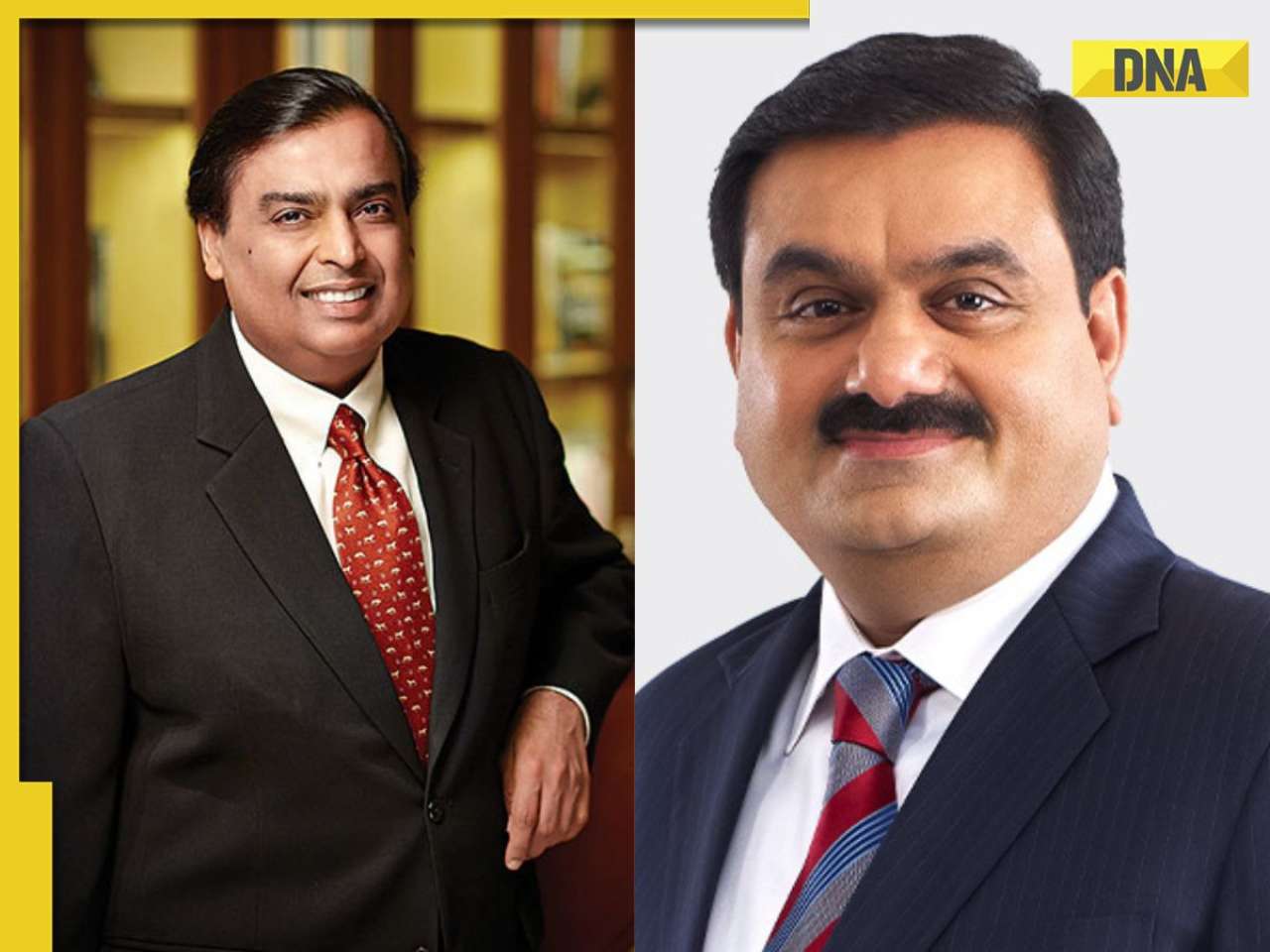There are many triggers for mental disorders which can turn into illnesses that often play out unscreamed, and untreated. On World Health Day, DNA analyses an oft-ignored problem.
In a city moving at breakneck speed, it is time to let go of old perceptions of sanity. There are many triggers for mental disorders which can turn into illnesses that often play out unscreamed, and untreated. On World Health Day, Humaira Ansari and Namita Handa analyse an oft-ignored problem.
Since society gets jittery with that which is not the norm, it turns on the aberrant, expecting him, or her, to lie low and invisible. That is why mental illnesses have always been dealt with behind closed doors, sometimes all alone, if they are dealt with at all. A clinically depressed parent, a bipolar child, a paranoid schizophrenic neighbour, an obsessive compulsive colleague — sometimes we can never see the behavioural patterns and if we do, we brush it all under the carpet, calling them tragic character flaws, when the truth is that serious mental disorders worsen with age, if not treated.
Then one day we hear of an incident like the Andheri shootout, where a middle-aged man shot his teenaged neighbour in a fit of rage over trifling repair work. Psychiatrists ventured that “Maroliya was a disturbed man whose malaise went untreated”.
Mental health is not as rare as a freak shootout. It confronts everyone at some point or another, first-hand or indirectly. Last year, a World Health Organisation report put the number of people suffering from schizophrenia at 1.6% of the global population.
Ours is a culture that sanctions aggression that can provide triggers for dormant disorders to surface. Ours is also a culture of silence.
Malini Shah, senior counsellor, Aavishkar Centre, says, “Mumbai’s mental health barometer is shifting from being bad to worse.” While the stigma attached to seeking assistance for disorders like stress, depression and anxiety is slowly waning, those suffering from serious personality and psychotic disorders like schizophrenia, bipolar disorder, obsessive compulsive personality disorder and borderline personality disorder, often don’t acknowledge their mental condition. Even if they do, they dare not let the fact out in the open for fear of ridicule and alienation.
Gurudatt Kundapurkar, vice-president of Pune-based Schizophrenia Awareness Association, says we need to grow out of the mindset that ‘if he is taking psychological help, he is mad’. “And this thinking is prevalent across all sections of society,” he says.
Maybe that’s what led 19-year-old engineering student Amit Pandey* to a tantrik when he started hearing his dead grandfather’s voice in the night calling him a failure. He could never have imagined that it was all in his head. His condition consistently deteriorated. Finally, the student met a psychologist only to learn that he was a schizophrenic. During his treatment, Pandey confessed that he didn’t eat food at his hostel, fearing that his competitive classmates may have poisoned it.
Thara Srinivasan, director of the Schizophrenia Research Foundation, an NGO that has been conducting research in the area of mental health for the last 25 years, feels that mental health is seriously ignored, right from funding to a well-in-place mental health policy. “In countries like India, infectious diseases take priority in policy-making and understandably so, but it’s important to focus on mental health issues as well,” she says.
Even the law has managed to change little in a social space directed by attitudes. While a recent high court judgment stated that no person can be terminated from service if he develops a mental ailment, experts say there are still many who are forced to quit their jobs because of their condition. “Several patients have been asked to leave their jobs, despite the fact that their condition is not so severe that they discontinue working,” says psychiatrist Harish Shetty. This not only aggravates matters but in cases where there are no support systems in place, patients also end up committing suicide, he adds.
Experts point out that there has been a steady increase in cases of anxiety, stress and depression over all ages and professions. “These are like the most common mental health disorders. But if left untreated, they can manifest into more complicated mental health conditions,” says Shah.
The factors that have taken a toll on the city’s mental health, experts believe, are vast and varied: traffic jams, unfavourable infrastructure, increased cost of living, higher aspirations, relationship turmoil, over-population and increased dependence on technology. “We are leading such a fast-paced life that we want to live a century in a decade. Obviously, the bubble will burst with the rise in pressure,” says Shetty.
![submenu-img]() Viral video: Ghana man smashes world record by hugging over 1,100 trees in just one hour
Viral video: Ghana man smashes world record by hugging over 1,100 trees in just one hour![submenu-img]() This actress, who gave blockbusters, starved to look good, fainted at many events; later was found dead at...
This actress, who gave blockbusters, starved to look good, fainted at many events; later was found dead at...![submenu-img]() Taarak Mehta actor Gurucharan Singh operated more than 10 bank accounts: Report
Taarak Mehta actor Gurucharan Singh operated more than 10 bank accounts: Report![submenu-img]() Ambani, Adani, Tata will move to Dubai if…: Economist shares insights on inheritance tax
Ambani, Adani, Tata will move to Dubai if…: Economist shares insights on inheritance tax![submenu-img]() Cargo plane lands without front wheels in terrifying viral video, watch
Cargo plane lands without front wheels in terrifying viral video, watch![submenu-img]() DNA Verified: Is CAA an anti-Muslim law? Centre terms news report as 'misleading'
DNA Verified: Is CAA an anti-Muslim law? Centre terms news report as 'misleading'![submenu-img]() DNA Verified: Lok Sabha Elections 2024 to be held on April 19? Know truth behind viral message
DNA Verified: Lok Sabha Elections 2024 to be held on April 19? Know truth behind viral message![submenu-img]() DNA Verified: Modi govt giving students free laptops under 'One Student One Laptop' scheme? Know truth here
DNA Verified: Modi govt giving students free laptops under 'One Student One Laptop' scheme? Know truth here![submenu-img]() DNA Verified: Shah Rukh Khan denies reports of his role in release of India's naval officers from Qatar
DNA Verified: Shah Rukh Khan denies reports of his role in release of India's naval officers from Qatar![submenu-img]() DNA Verified: Is govt providing Rs 1.6 lakh benefit to girls under PM Ladli Laxmi Yojana? Know truth
DNA Verified: Is govt providing Rs 1.6 lakh benefit to girls under PM Ladli Laxmi Yojana? Know truth![submenu-img]() Alia Bhatt wears elegant saree made by 163 people over 1965 hours to Met Gala 2024, fans call her ‘princess Jasmine’
Alia Bhatt wears elegant saree made by 163 people over 1965 hours to Met Gala 2024, fans call her ‘princess Jasmine’![submenu-img]() Jr NTR-Lakshmi Pranathi's 13th wedding anniversary: Here's how strangers became soulmates
Jr NTR-Lakshmi Pranathi's 13th wedding anniversary: Here's how strangers became soulmates![submenu-img]() Streaming This Week: Heeramandi, Shaitaan, Manjummel Boys, latest OTT releases to binge-watch
Streaming This Week: Heeramandi, Shaitaan, Manjummel Boys, latest OTT releases to binge-watch![submenu-img]() Remember Ayesha Kapur? Michelle from Black, here's how actress, nutrition coach, entrepreneur looks after 19 years
Remember Ayesha Kapur? Michelle from Black, here's how actress, nutrition coach, entrepreneur looks after 19 years![submenu-img]() Remember Heyy Babyy's cute 'Angel' Juanna Sanghvi? 20 year-old looks unrecognisable now, fans say 'her comeback will...'
Remember Heyy Babyy's cute 'Angel' Juanna Sanghvi? 20 year-old looks unrecognisable now, fans say 'her comeback will...'![submenu-img]() Haryana Political Crisis: Will 3 independent MLAs support withdrawal impact the present Nayab Saini led-BJP government?
Haryana Political Crisis: Will 3 independent MLAs support withdrawal impact the present Nayab Saini led-BJP government?![submenu-img]() DNA Explainer: Why Harvey Weinstein's rape conviction was overturned, will beleaguered Hollywood mogul get out of jail?
DNA Explainer: Why Harvey Weinstein's rape conviction was overturned, will beleaguered Hollywood mogul get out of jail?![submenu-img]() What is inheritance tax?
What is inheritance tax?![submenu-img]() DNA Explainer: What is cloud seeding which is blamed for wreaking havoc in Dubai?
DNA Explainer: What is cloud seeding which is blamed for wreaking havoc in Dubai?![submenu-img]() DNA Explainer: What is Israel's Arrow-3 defence system used to intercept Iran's missile attack?
DNA Explainer: What is Israel's Arrow-3 defence system used to intercept Iran's missile attack?![submenu-img]() This actress, who gave blockbusters, starved to look good, fainted at many events; later was found dead at...
This actress, who gave blockbusters, starved to look good, fainted at many events; later was found dead at...![submenu-img]() Taarak Mehta actor Gurucharan Singh operated more than 10 bank accounts: Report
Taarak Mehta actor Gurucharan Singh operated more than 10 bank accounts: Report![submenu-img]() Aavesham OTT release: When, where to watch Fahadh Faasil's blockbuster action comedy
Aavesham OTT release: When, where to watch Fahadh Faasil's blockbuster action comedy![submenu-img]() Sonakshi Sinha slams trolls for crticising Heeramandi while praising Bridgerton: ‘Bhansali is selling you a…’
Sonakshi Sinha slams trolls for crticising Heeramandi while praising Bridgerton: ‘Bhansali is selling you a…’![submenu-img]() Sanjeev Jha reveals why he cast Chandan Roy in his upcoming film Tirichh: 'He is just like a rubber' | Exclusive
Sanjeev Jha reveals why he cast Chandan Roy in his upcoming film Tirichh: 'He is just like a rubber' | Exclusive![submenu-img]() IPL 2024: Mumbai Indians knocked out after Sunrisers Hyderabad beat Lucknow Super Giants by 10 wickets
IPL 2024: Mumbai Indians knocked out after Sunrisers Hyderabad beat Lucknow Super Giants by 10 wickets![submenu-img]() PBKS vs RCB IPL 2024: Predicted playing XI, live streaming details, weather and pitch report
PBKS vs RCB IPL 2024: Predicted playing XI, live streaming details, weather and pitch report![submenu-img]() PBKS vs RCB IPL 2024 Dream11 prediction: Fantasy cricket tips for Punjab Kings vs Royal Challengers Bengaluru
PBKS vs RCB IPL 2024 Dream11 prediction: Fantasy cricket tips for Punjab Kings vs Royal Challengers Bengaluru![submenu-img]() Watch: Bangladesh cricketer Shakib Al Hassan grabs fan requesting selfie by his neck, video goes viral
Watch: Bangladesh cricketer Shakib Al Hassan grabs fan requesting selfie by his neck, video goes viral![submenu-img]() IPL 2024 Points table, Orange and Purple Cap list after Delhi Capitals beat Rajasthan Royals by 20 runs
IPL 2024 Points table, Orange and Purple Cap list after Delhi Capitals beat Rajasthan Royals by 20 runs![submenu-img]() Viral video: Ghana man smashes world record by hugging over 1,100 trees in just one hour
Viral video: Ghana man smashes world record by hugging over 1,100 trees in just one hour![submenu-img]() Cargo plane lands without front wheels in terrifying viral video, watch
Cargo plane lands without front wheels in terrifying viral video, watch![submenu-img]() Tiger cub mimics its mother in viral video, internet can't help but go aww
Tiger cub mimics its mother in viral video, internet can't help but go aww![submenu-img]() Octopus crawls across dining table in viral video, internet is shocked
Octopus crawls across dining table in viral video, internet is shocked![submenu-img]() This Rs 917 crore high-speed rail bridge took 9 years to build, but it leads nowhere, know why
This Rs 917 crore high-speed rail bridge took 9 years to build, but it leads nowhere, know why 
























































)
)
)
)
)
)